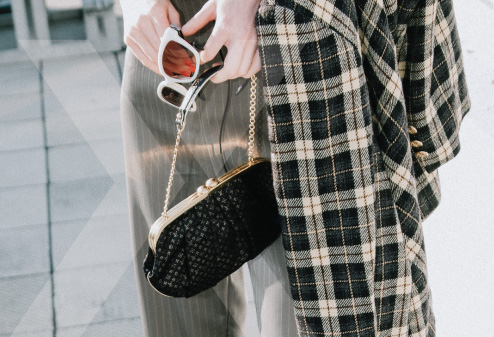
South Africa’s largest pre-owned and authenticated luxury reseller, Luxity, reported an 86% increase in growth during the 2021/22 financial year and a 190% spike since the start of the pandemic[i]. In contrast, South Africa’s retail trade sector grew by 6.4% in 2021, compared to a 7.1% slump in 2020[ii]. Despite this uptick, it continues to underperform in comparison to pre-Covid times. This outperformance signals growing adoption of the pre-owned sector in the minds of South African consumers.
This growth is expected to continue with the addition of a new clothing offering to complement Luxity’s collection of shoes, bags and accessories which is growing faster than any other category currently.
Luxity Co-Founder, Michael Zahariev, believes that the growth experienced by the company echoes global trends. The global pre-owned luxury market swelled to US$36 billion in 2021, galvanised by increased demand and supply[iii]. In fact, this market grew by 65% between 2017 and 2021, compared to 12% for first-hand items[iv].
As a whole, the international fashion resale market is predicted to grow 11 times faster than the broader retail clothing sector by 2025[v]. In 2020, 86% of consumers said that they have either bought or were open to buying pre-owned products – a massive jump from 45% in 2016[vi]. Zahariev says that, although lagging, similar trends are taking shape in South Africa where the local market is at a growing pace. “We predict that by 2027, one in 10 luxury items bought will be pre-owned.”
Acceleration by SA’s aspiring middle class
Internationally, Gen Z and Millennials have adopted pre-owned shopping 2.5 times faster than other generations[vii]. They are also set to make up the majority of the luxury market by 2025[viii]. “What we’re seeing locally, however, is that South African Gen Zs and Millennials comparatively lack the purchasing power to afford pre-owned luxury. It is actually the country’s aspiring middle class that is driving the growth of the sector. We believe that this is due to them now having access to these items, whereas before they were out of reach from a cost perspective,” shares Zahariev.
Second-hand sustainability
One in three consumers worldwide say they care more about wearing sustainable apparel than they did prior to the pandemic[ix]. To put it in perspective, each new item of clothing produces 9.5kg of carbon emissions, consumes 39kWh of electricity and wastes 297 litres of water[x]. On the other hand, a pre-owned item generates less than 2kg of carbon emissions, expends under 5 kWh of electricity and uses 4.5 litres of water[xi]. “This is also beneficial for South Africans seeing that we, as a country, need to reduce our greenhouse gas emissions to net-zero by 2050.”
Leveraging local market growth
The Luxity Co-Founder is confident that the pre-owned luxury market will continue its upward trajectory. “While this is a way of life abroad, it was only a matter of time until South Africa joined in on the global trend. With easier access to goods, flexible payment terms and the ability to procure rare items that are not available brand new in the country, it’s no wonder there has been a boom in the sector over the past five years.”
He concludes by saying, “We are excited by the growth we have seen to date in the local market and believe that investment in luxury pre-owned items will become an even more compelling proposition for South African consumers in the future.”
About Luxity
Established in 2016, Luxity is South Africa’s first omnichannel boutique focused on buying and selling pre-owned, authentic luxury goods to consumers throughout the country. The Luxity online and physical stores in Nelson Mandela Square, Cape Quarter and Menlyn Maine provide local access to some of the world’s most coveted brands including Louis Vuitton, Rolex, Hermes, Chanel and Gucci. For more information, go to https://luxity.co.za.
[i] https://www.tralac.org/news/article/15485-tralac-daily-news-26-january-2022.html
[ii]https://tradingeconomics.com/south-africa/retail-sales-annual#:~:text=percent%20in%20November).-,On%20a%20monthly%20basis%2C%20retail%20trade%20increased%201.5%20percent%2C%20after,7.1%20percent%20slump%20in%202020.
[iii] https://www.bain.com/insights/from-surging-recovery-to-elegant-advance-the-evolving-future-of-luxury/
[iv] https://www.bain.com/insights/from-surging-recovery-to-elegant-advance-the-evolving-future-of-luxury/
[v] https://www.thredup.com/resale/#size-and-impact
[vi] https://www.thredup.com/resale/#size-and-impact
[vii] https://www.ypulse.com/article/2019/11/12/young-shoppers-are-choosing-secondhand-clothing-heres-how-big-brands-are-dealing/
[viii] https://www.bain.com/insights/luxury-goods-worldwide-market-study-fall-winter-2018/
[ix] https://www.thredup.com/resale/#size-and-impact
[x] https://www.thredup.com/resale/#size-and-impact
[xi] https://www.thredup.com/resale/#size-and-impact

